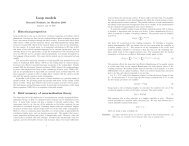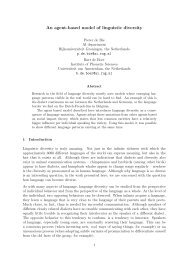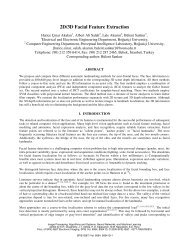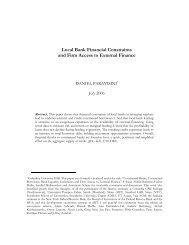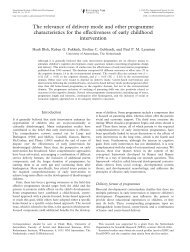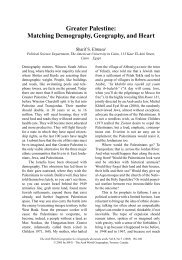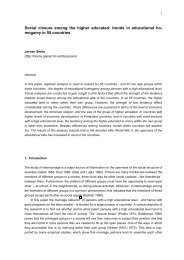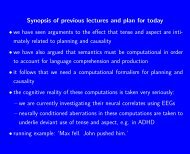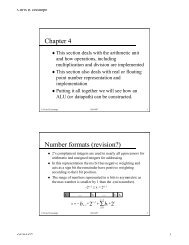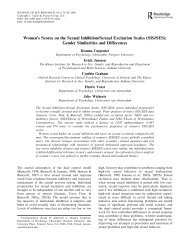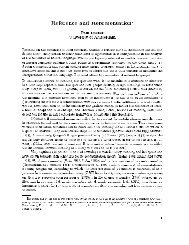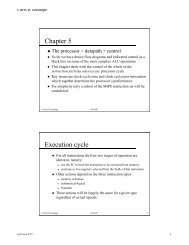PDF-file - Universiteit van Amsterdam
PDF-file - Universiteit van Amsterdam
PDF-file - Universiteit van Amsterdam
Create successful ePaper yourself
Turn your PDF publications into a flip-book with our unique Google optimized e-Paper software.
416 M VAN WINDEN(Jeremy Bentham) had definitively lost impetus, and Adam Smith’s (other)classic work on moral sentiments had fallen into obscurity.MARCHING SEPARATELYThe academic division of labor between psychology and economics, allowingthese disciplines to exploit and explore their methodologies to the full, hasbeen very productive in the past. However, it is also felt that, although economistsmay have been too eager to construct “logical superhighways” withoutmuch empirical support, psychologists were perhaps too reluctant to ventureformalized generalizations using their wealth of experimental data. Recentdevelopments suggest that the combination of experimentation and mathematicalformalization is a powerful match for further scientific progress and ispromising in terms of bringing psychology and economics closer together. Becausethe focus in this essay is on social psychology, I discuss these issues usingsome of my own experiences concerning research on social interaction ingroups. My aim is to illustrate the instrumentality of experimentation for makingbridges, and to indicate the importance of theoretical modeling as well asthe rele<strong>van</strong>ce of institutions.LESSONS FROM SOCIAL DILEMMAS AND PUBLIC GOODSA major topic in the social sciences concerns the behavior of individuals in socialdilemmas. In economics, important theoretical work has been done regardingthe related issue of public goods. This work has generated manyinsights into the responses of homo economicus to changes in behavioral constraints(income, prices). However, the observation that in reality the predictedfree-riding seemed less severe stimulated an interest in applyinglaboratory experimentation, which was emerging as a research method in economics(in the early 1960s successfully applied to markets by Nobel laureateVernon Smith). About two decades of experimental work has clearly shownthe restraining nature of the assumptions of the homo economicus model(see Ledyard, 1995; <strong>van</strong> Winden, 2002). Because public good environmentsare perhaps the simplest to study behavior in groups, and groups are a core issuein the social sciences, I see the following experiences as important from abridging perspective.First, by getting involved in a shared methodology (experimentation), it becamemore difficult to neglect the findings of social psychologists.Second, the experimental designs were in the domain of the theoreticalmodels, making it difficult for theorists to contest the results and stay within anivory tower (which was easier with field empirical observations plagued by allsorts of noise effects). For the development of experimental economics, thissupport from (particularly game) theorists has been extremely important.Third, the emphasis in economics on modeling proved very helpful—firstby structuring experimental work through the application of theoretical tools



